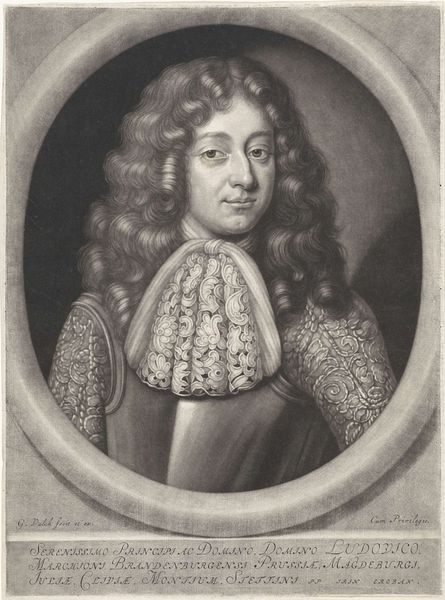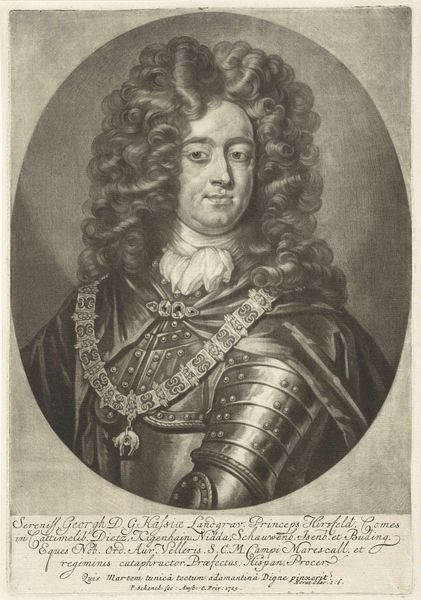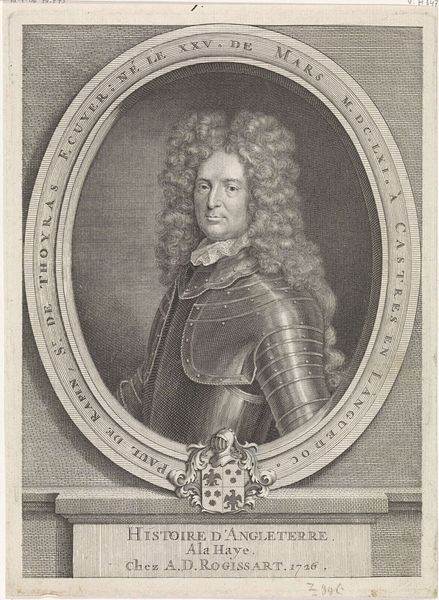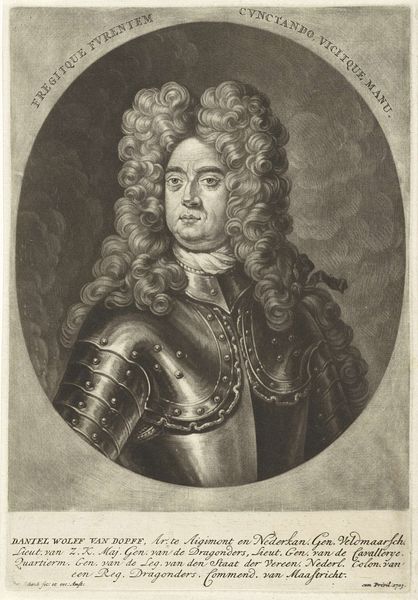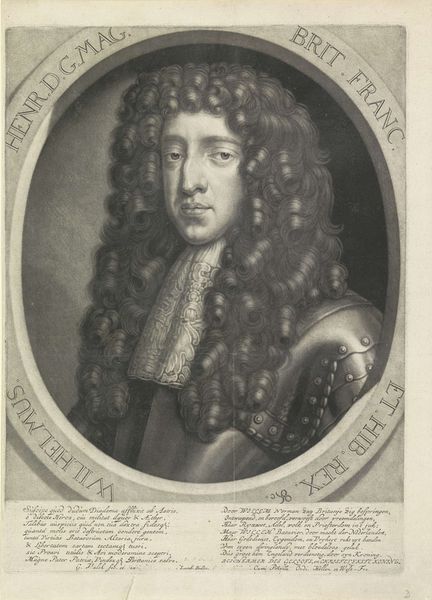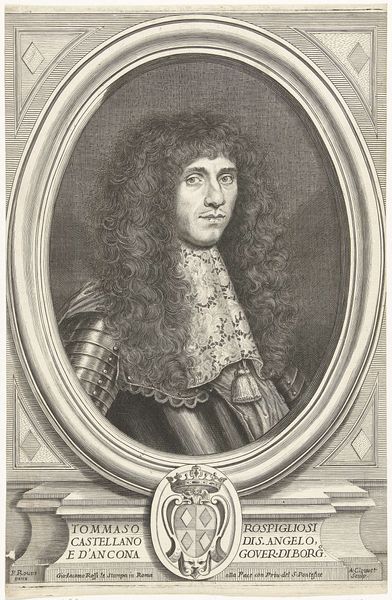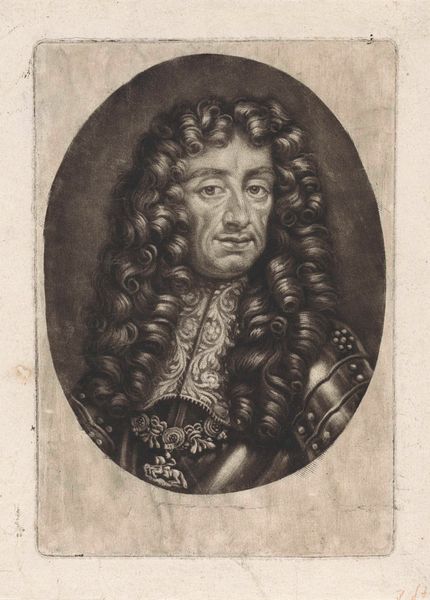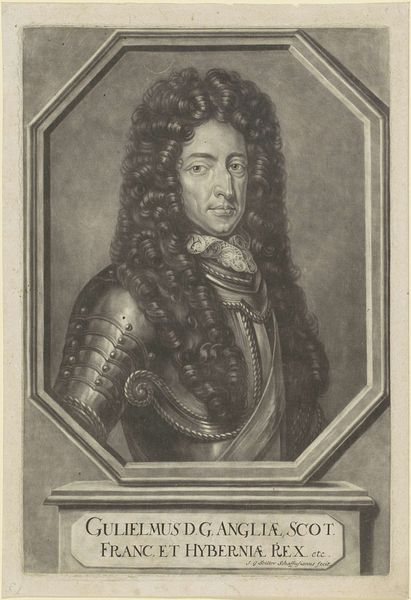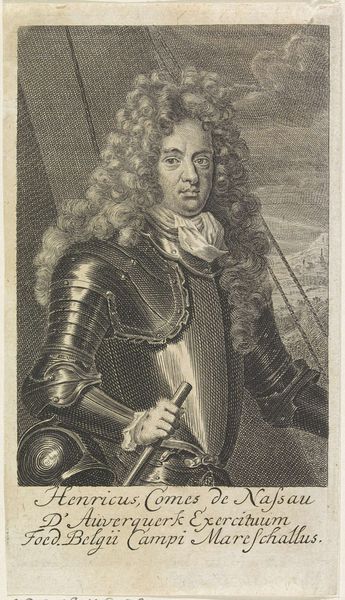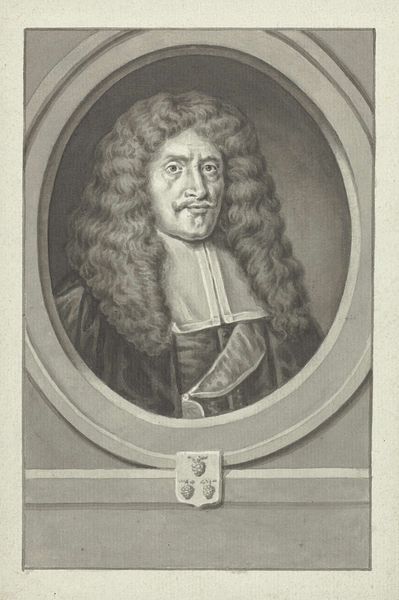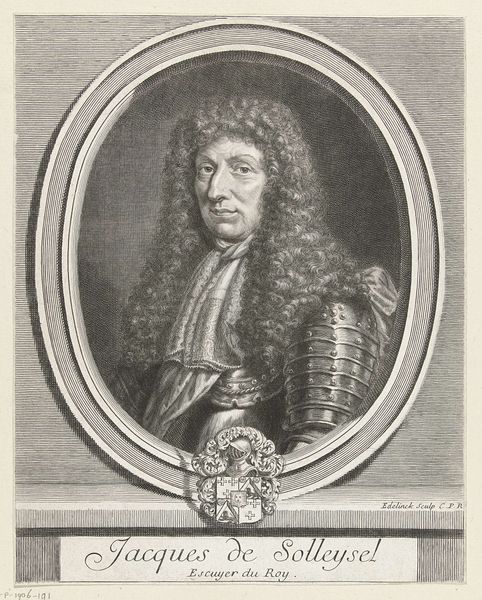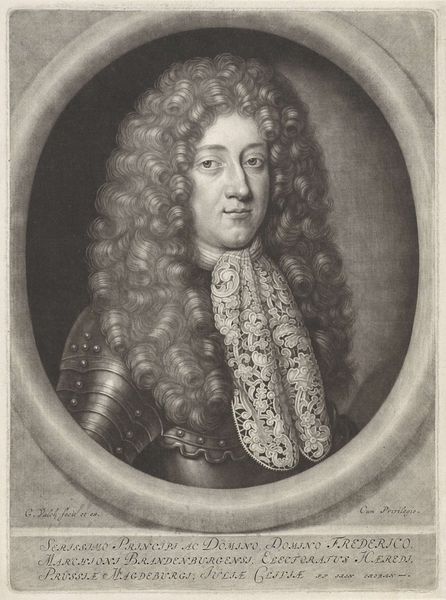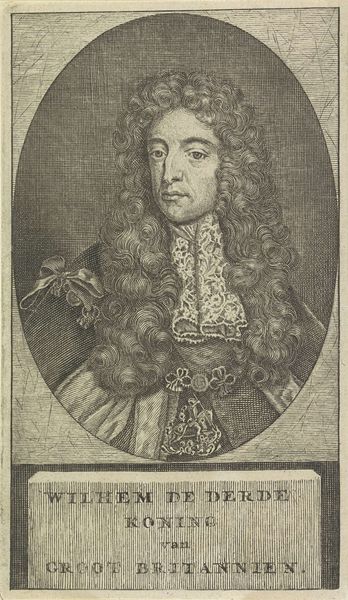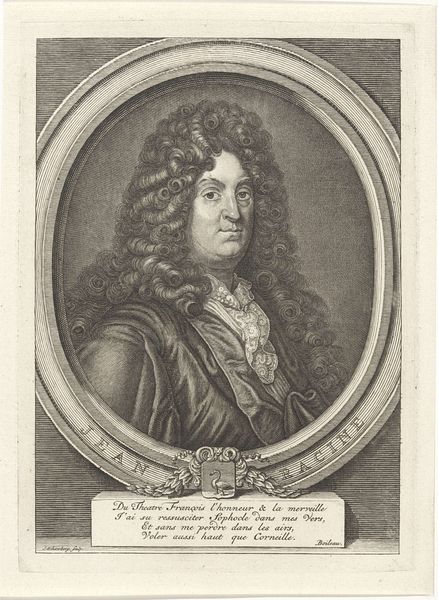
print, engraving
#
portrait
#
baroque
# print
#
old engraving style
#
charcoal drawing
#
portrait reference
#
19th century
#
history-painting
#
engraving
Dimensions: height 283 mm, width 201 mm
Copyright: Rijks Museum: Open Domain
Editor: Here we have "Portrait of Cornelis Tromp", an engraving made sometime between 1664 and 1721. What strikes me is the subject's elaborate wig and armour—quite the statement of power. What do you see in this piece from a historical perspective? Curator: It's crucial to remember that portraiture, particularly engravings like this, played a vital role in constructing and disseminating public images, and asserting elite power. The armour, lace, and even that very wig, they're not just details. Editor: You mean it was more than just trying to look good? Curator: Precisely! Think about the context: the Dutch Golden Age, a time of immense maritime power and social stratification. Tromp, as a celebrated naval commander, embodies that power. His portrait is intended for broad distribution, shaping public perception of his authority and the Republic’s strength. Who, for example, was this engraving for, and what story did they already believe? Editor: I guess it's reinforcing a narrative. So the armor isn't just functional, it’s symbolic. And mass producing portraits meant more people would be influenced. It’s interesting how a print could be such an effective tool for social control. I never thought about art having such a public role back then. Curator: Exactly. Now, look closer. That pendant – can you tell me what it represents, in relation to this individual's authority in global trade? That could tell us a whole story about the institution the work served. Editor: Wow, I'll definitely pay more attention to the subtle clues in portraits from now on. There is much more at play than what meets the eye.
Comments
No comments
Be the first to comment and join the conversation on the ultimate creative platform.
